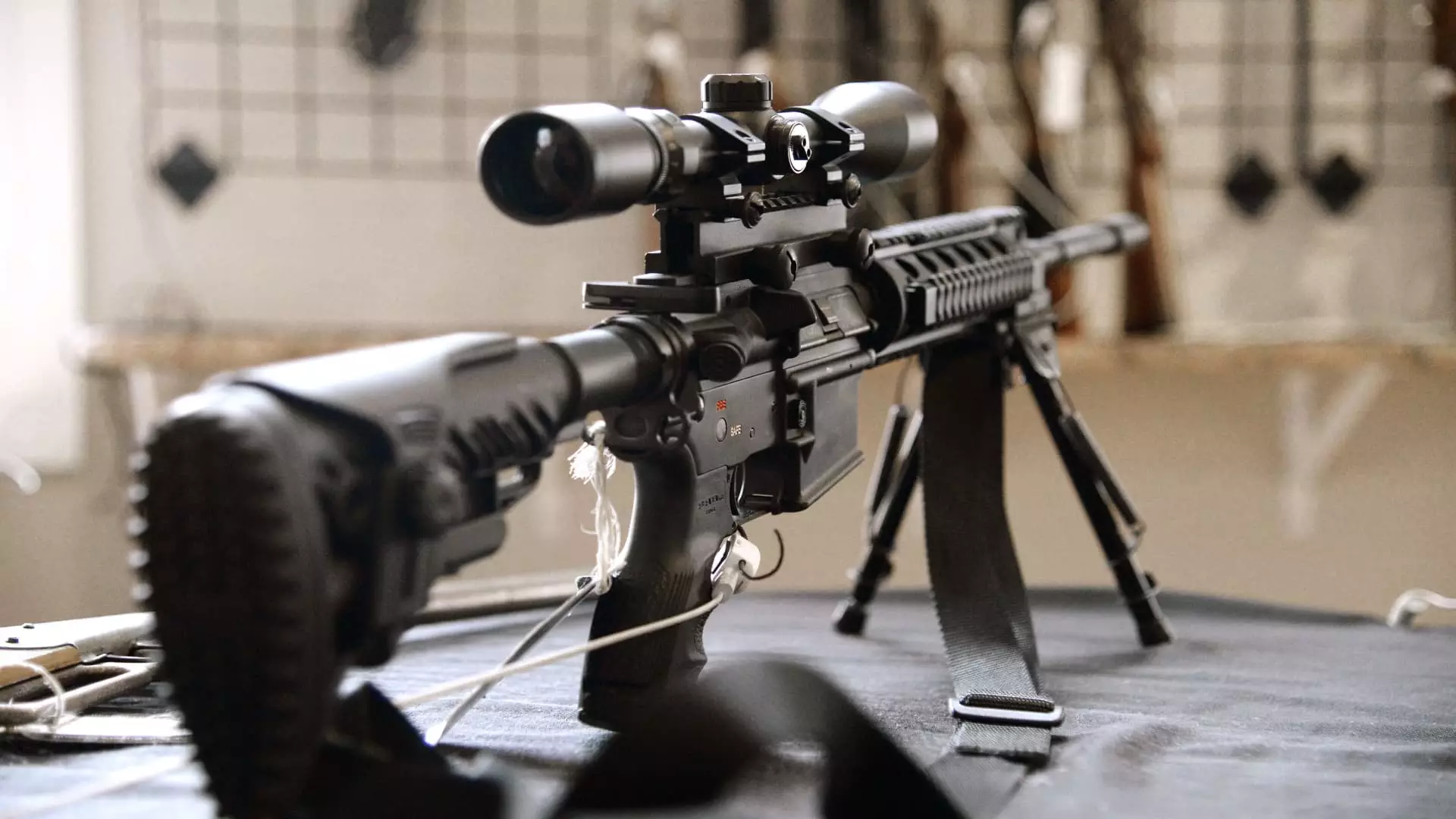On a notable day in the Rhode Island State House, Democratic officials advanced a significant piece of legislation that seeks to prohibit the manufacturing and sale of certain semiautomatic rifles, commonly labeled as assault weapons. This move is not just a response to rampant gun violence but rather a reflection of a broader national dialogue about the regulation of high-caliber firearms. As the bill now transitions to Governor Dan McKee, who supports such bans, Rhode Island might soon find itself among a coalition of states committed to restricting access to weapons that have too often been exploited in mass shootings.
This legislative push represents a culmination of over a decade of advocacy by gun control supporters who have rallied fervently for stricter laws against assault weapons in Rhode Island—a state that is politically very much a blue bastion. Surprisingly, the path to this point has been fraught with challenges. Even among a Democratic majority, there has been hesitation and debate over the balance between individual rights and public safety that underscores the complexity of this issue. The bill’s current limitations make it clear: it targets sales and manufacturing, but citizens can still legally possess their existing rifles.
The Politics of Gun Control: An Incremental Approach?
During the debate in the House, Democratic Representative Rebecca Kislak aptly described the legislation as a “step in the right direction.” However, her sentiment also carries an undercurrent of frustration. One can’t help but wonder: Why is merely doing something the gold standard for progress? In her call for action, Kislak expresses a hesitation common among liberal lawmakers: the fear of inadequate measures. While any movement is often seen as a necessity, it is equally essential to push for meaningful, comprehensive changes rather than settling for what might seem like the first baby step in a marathon for safety.
Critics within the GOP have raised their voices in opposition, framing these bans as a punitive measure against lawful gun owners rather than addressing the malignancies of gun violence. Republican Senator Thomas Paolino’s assertion that the bill targets law-abiding citizens rather than criminals is not without merit. However, should that perspective diminish the importance of ending the sale of firearms that significantly contribute to the lethality of mass shootings? This highlights a crucial debate: Is it possible to protect individual rights while simultaneously enabling a safer environment for all?
The Contentious Debate: Strength vs. Weakness
The discourse surrounding the proposal has grown even more contentious, with uncompromising views emerging from both sides. Gun control advocates, including Parkland survivor David Hogg, have suggested that the proposed law is the “weakest assault weapons ban in the country.” This rhetoric raises a pressing question: how do we measure the strength of a law? Hogg argues that merely restricting the sale is ineffectual without addressing possession. In a world where gun violence transcends state lines, an incrementally weak law may only serve to perpetuate a cycle of violence elsewhere.
Opposing this viewpoint, advocates like Elisabeth Ryan of Everytown for Gun Safety challenge the narrative of weakness. They posit that current laws in Rhode Island do nothing to curb the peril of assault weapons, and even a partial ban has significant implications for community safety. From this lens, the proposed law could enact a “real, enforceable ban” that takes high-powered rifles out of circulation, offering a tangible shift towards a safer Rhode Island.
This juxtaposition of views is emblematic of a larger national struggle where values and beliefs about gun ownership are deeply entrenched. With multiple states enforcing various levels of legislation against assault weapons, Rhode Island’s stance could serve as a litmus test for the future of gun control laws and their viability within a conservative-leaning Supreme Court.
Looking Ahead: A Call For Comprehensive Change
As Rhode Island stands at a critical juncture, this legislation evokes a complex array of emotional and political responses. It urges a questioning of not just what measures can be implemented but also how vigorously advocates can push for expansive reforms beyond small victories. The cycle of violence necessitates more than surface-level legislative action; it calls for a commitment to address not just the tools of violence but also the cultural settings that allow for such devastation.
With the current trajectory pointing towards a potential ratification of the bill, Rhode Island could lead the charge in a necessary conversation. However, to truly honor the lives impacted by gun violence, this dialogue must transcend mere semantics. It must embrace courage, urgency, and the will to dismantle systems that enable mass shootings—a reality that each passing day underscores ever more painfully.


Leave a Reply